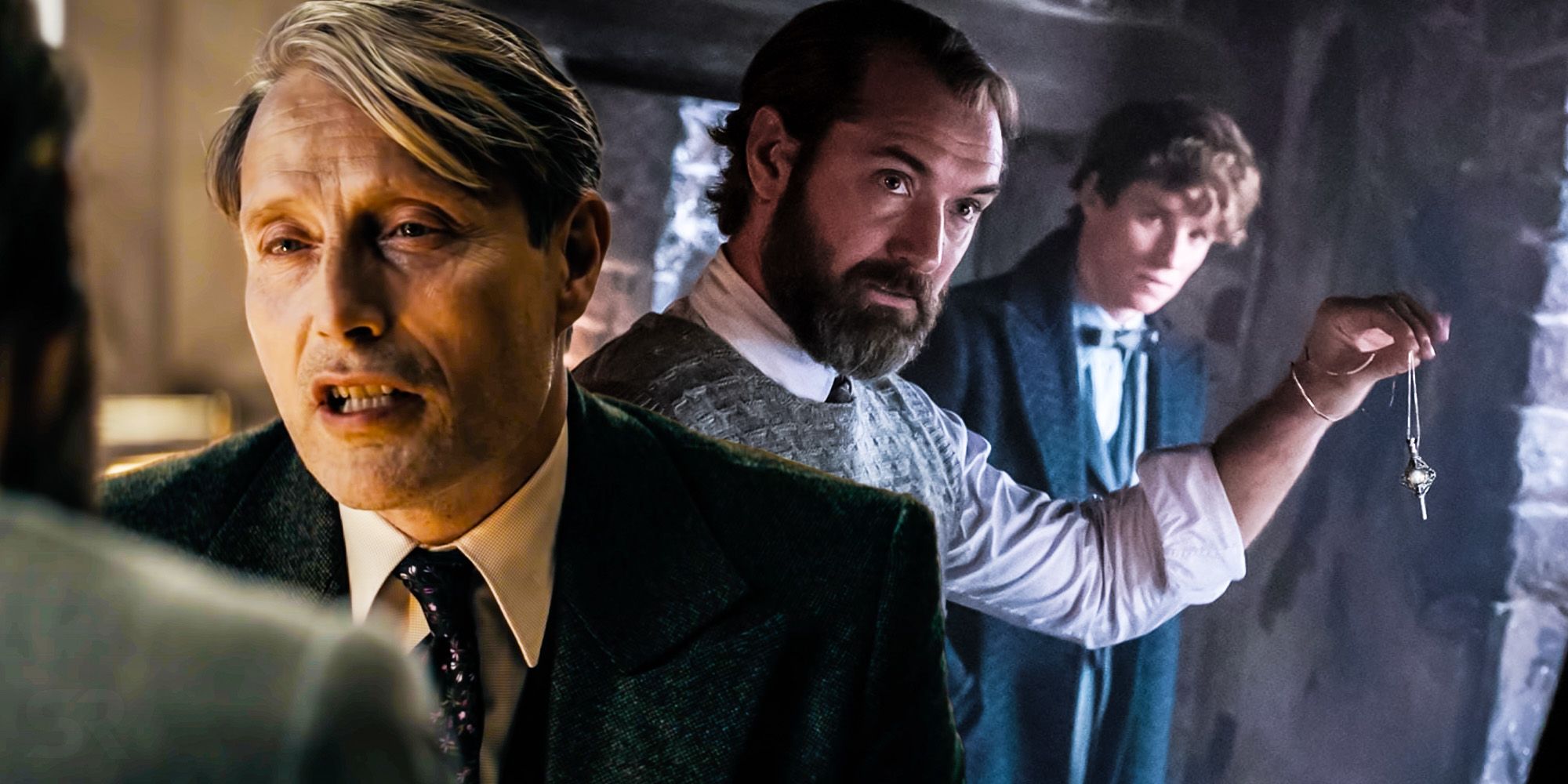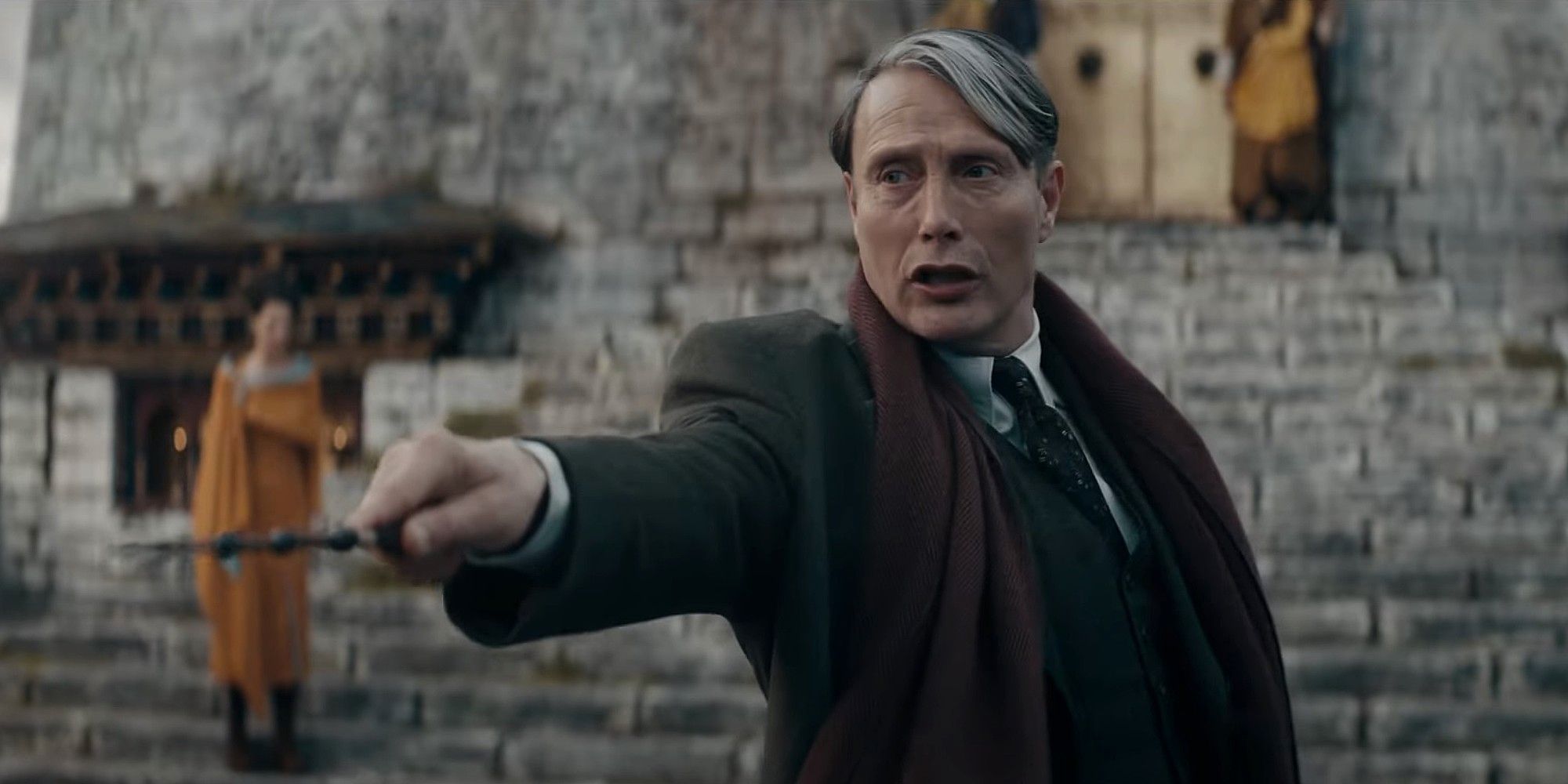
WARNING! This article contains SPOILERS for Fantastic Beasts: The Secrets of Dumbledore.
Fantastic Beasts: The Secrets of Dumbledore saw Albus (Jude Law) and Aberforth Dumbledore (Richard Coyle) destroy Albus's blood pact with Gellert Grindelwald (Mads Mikkelsen), and while this might seem rushed, it's actually a perfect plot twist. The third installment of the five-movie franchise intertwined the secrets of the Dumbledore family with Albus' grand plan to confuse Grindelwald and curb his rise in power. The film begins and ends with a focus on the blood pact, with a three-way duel finally breaking it and leaving room for Albus to face Grindelwald in Fantastic Beasts 4.
In the very first scene of Fantastic Beasts 3, Albus meets Grindelwald in a Muggle cafe, revealing his past feelings for him, and his determination to break their blood pact and face him in battle. Albus confirms the gravity of going against the blood pact in front of Newt (Eddie Redmayne) and Aberforth, and it seems like an incredibly hard task to destroy it. Furthermore, some viewers expected Dumbledore to struggle with destroying the blood pact for the whole duration of Fantastic Beasts 3 and 4, knowing the famous 1945 duel between the two is bound to take place in the last Fantastic Beasts movie. It thus came as a surprise to many when Grindelwald's, Albus' and Aberforth's wands met and accidentally destroyed the blood pact.
Destroying the blood pact as early as the third Fantastic Beasts movie might seem rushed (considering there are two more films to go), but this is a great decision for the series' story. Watching Dumbledore struggle with destroying the pact and chasing Grindelwald in vain, unable to fight him, would have become a drag sooner rather than later. Moreover, there is great symbolic meaning behind what caused the blood pact to break. When Grindelwald realized Credence/Aurelius' allegiance is no longer to him, he cast Avada Kedavra, trying to kill him. But Albus and Aberforth reacted, and the three spells met in front of Credence. The same three people joined spells in 1899, with a tragic result: the death of Ariana Dumbledore. The spell worked as a sort of redemption for Dumbledore: while he lost Ariana in the first three-way duel, he saved Credence in the second one. The blood pact breaking as a result of this duel signals a Dumbledore who broke the shackles of his past: the guilt he carried for Ariana's death, and the pact that kept him from fighting Grindelwald.

Grindelwald's expression of sheer horror when he sees Dumbledore has ended the blood pact can be understood as a symbol for all that is to come in the next Fantastic Beasts installment. Albus can now face him in battle, and Grindelwald knows all too well that Albus is one of the most powerful wizards in the world, and possibly the only one who can bring him down. Grindelwald fled from Bhutan, but Dumbledore will most certainly be on his tail throughout the next Fantastic Beasts.
With the blood pact gone, it will be interesting to see how Dumbledore faces Grindelwald in Fantastic Beasts 4. This is no longer a cat-and-mouse game but a full-blown war, as the two powerful wizards are finally able to do their very best to stop the other. Fantastic Beasts thus became less predictable, more dynamic, and more interesting - while the 1945 duel remains almost certainly a peak moment in the fifth and final movie, the fourth film promises some interesting Dumbledore vs. Grindelwald scenes, too. Fantastic Beasts: The Secrets of Dumbledore was incredibly smart to end the blood pact when it did.
from ScreenRant - Feed https://ift.tt/xeJDCAT
